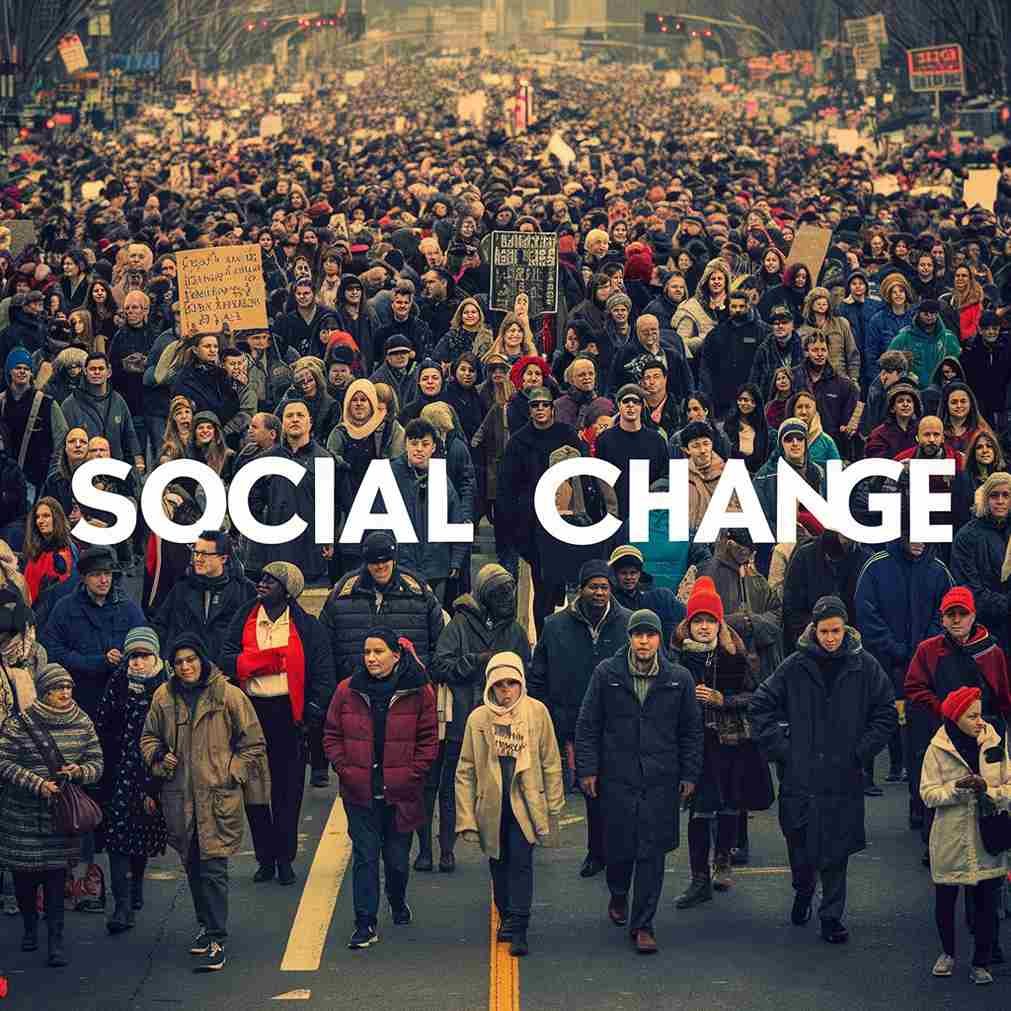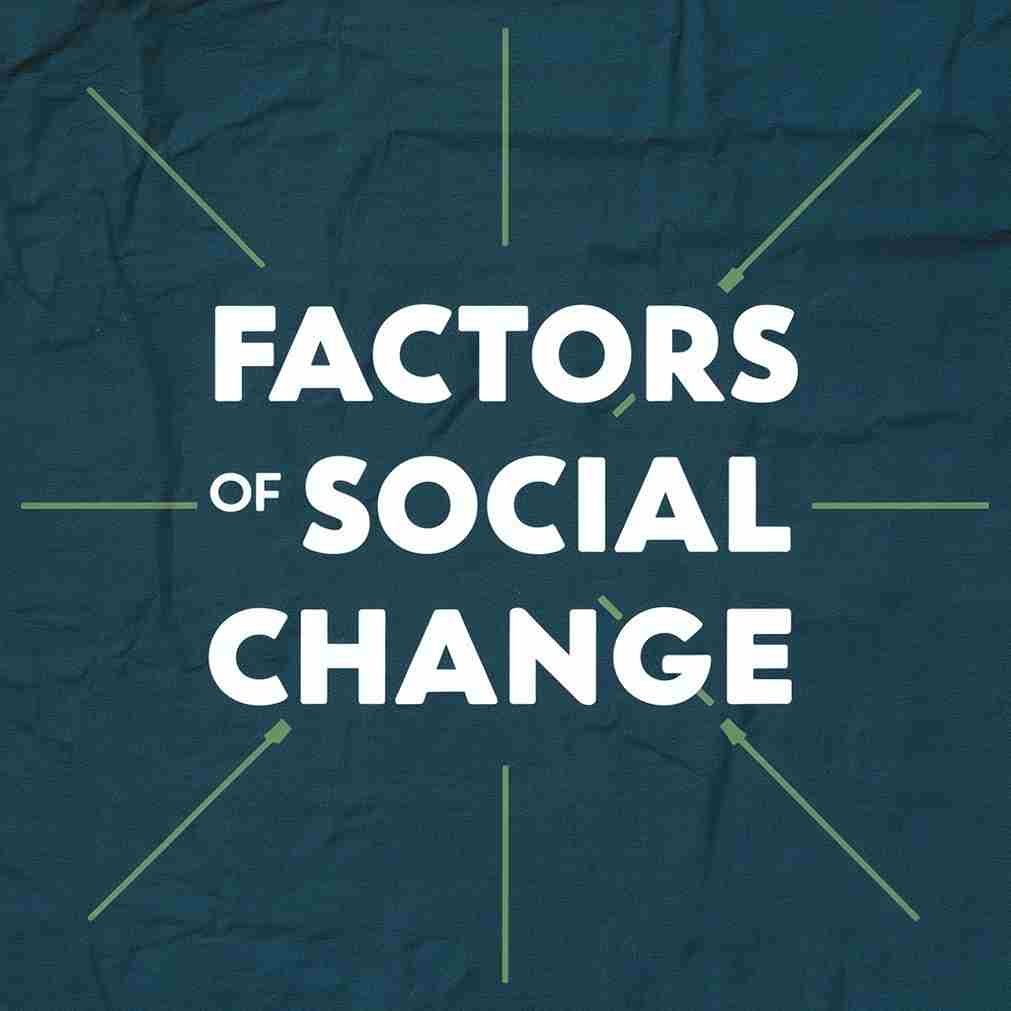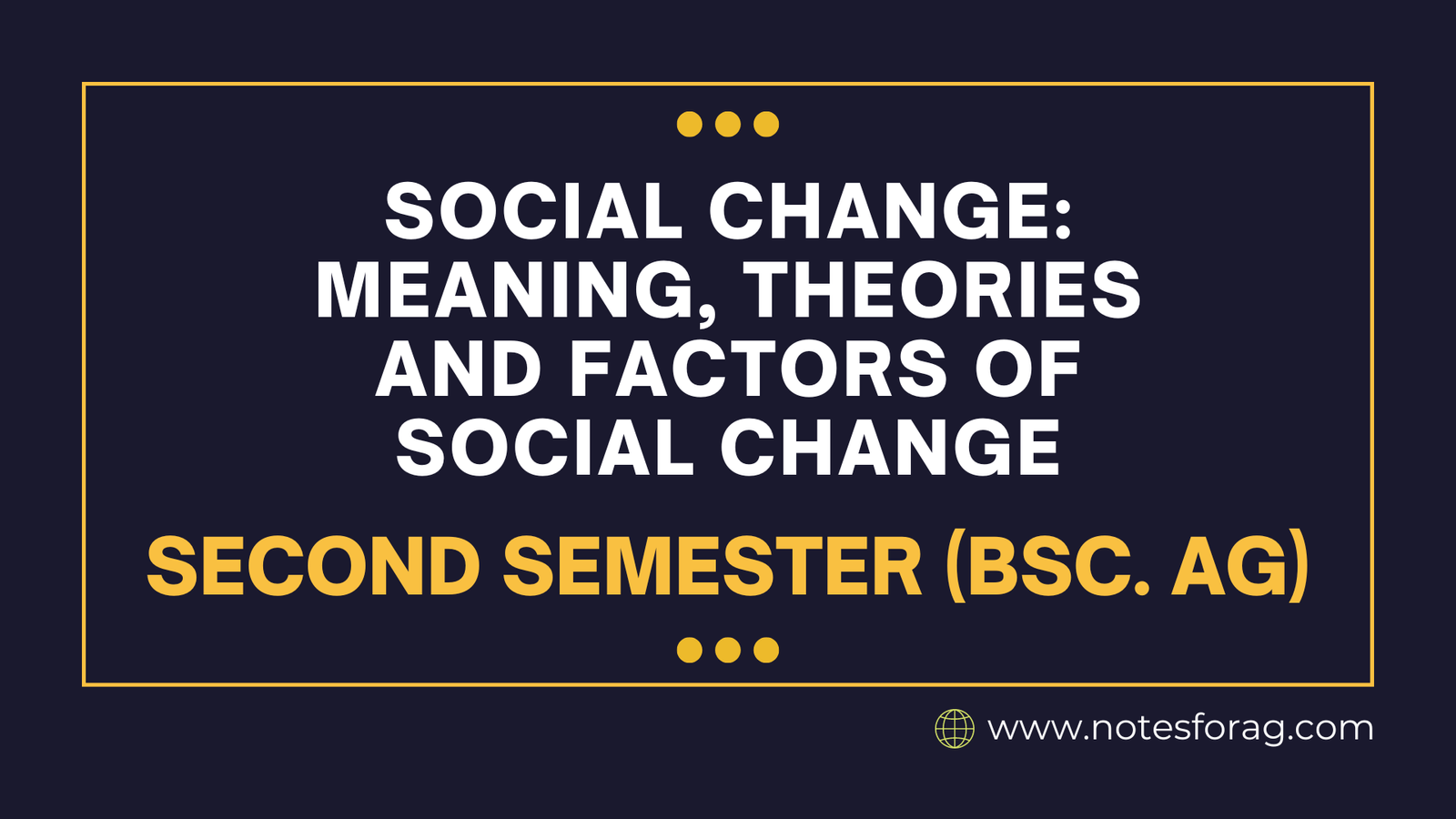Social change refers to substantial transformations in a society’s social structures, norms, cultural values, and behavioral patterns over time. These changes can significantly impact how individuals and groups interact, live, and organize within the society. Many things, such as improvements in technology, changes in the economy, political changes, alterations in culture, shifts in the population, and social movements, can lead to this dynamic process. Studying the many theories that clarify how and why societies change is necessary to comprehend social change. These theories emphasize the complex interactions between the various factors that push societal transformation.
Table of Contents
Introduction to Social Change

The substantial alterations to cultural norms and social structures that occur over time are referred to as social change. It includes shifts in institutions, values, and societal norms that affect how people interact with one another and with groups within a community. Since it promotes advancement and adaptation in response to both internal dynamics and external stimuli, it is crucial to understand how societies develop.
Social change is important and always influences how societies develop, so its importance cannot be emphasized. Cultural practices, institutional frameworks, and social relationships are just a few of the aspects of life that are impacted. Technology developments, alterations in the economy, political upheavals, and environmental circumstances can all serve as catalysts for the dynamic process of social change. This process guarantees societies’ survival and expansion by enabling them to adjust to new opportunities and challenges.
Theories of Social Change
Social change theories offer conceptual structures that help explain how societies change over time. Karl Marx, Max Weber, and Emile Durkheim are a few of the classical theorists who helped make these discussions possible. Diverse interpretations of the processes and results of social change are provided by their viewpoints as well as contemporary theories like Functionalism, Conflict Theory, and Symbolic Interactionism.
1. Evolutionary Theory
- Suggests that societies go through developmental phases in a way that is analogous to biological evolution.
- Theorists such as Auguste Comte and Herbert Spencer proposed that societies develop from simple to complex forms.
- Emphasizes development and adaptation that is slow and ongoing.
2. Functionalist Theory
- Associated with Emile Durkheim and Talcott Parsons.
- Believes that society is a complex system, with various components that cooperate to support social order and stability.
- It is believed that social change is a process of adaptation meant to preserve social balance.
3. Conflict Theory
- Developed by theorists such as C. Wright Mills, based on the concepts of Karl Marx.
- Concentrates on the disagreements and conflicts that exist between various social classes, organizations, and interests.
- These conflicts fuel social change, which frequently leads to distributions of power and wealth.
4. Cyclical Theory
- Advocated by scholars like Arnold Toynbee and Oswald Spengler.
- Contends that societies experience cycles of expansion, decline, and fall.
- Highlights how historical patterns are cyclical and repeating.
5. Modernization Theory
- Explains how modernization, which transforms traditional societies into contemporary, industrialized ones, causes social change.
- Connected to theorists such as W.W. Rostow who delineated economic growth stages that culminate in modernization.
- Focuses on changes in culture, economic growth, and technology innovation.
6. World-Systems Theory
- Formulated by Immanuel Wallerstein.
- Emphasizes the interconnectedness of nations and the global economic system.
- Argues that the dynamics of the global capitalist economy have an impact on social change, with different roles being played by core, semi-peripheral, and peripheral nations.
7. Cultural Lag Theory
- William F. Ogburn introduced it.
- Implies that technological advancements are not keeping up with cultural elements (such as values and beliefs).
- Society’s efforts to bridge the divide between technology and culture lead to social change.
Factors of Social Change

Social change is a complex phenomenon influenced by a multitude of factors, both internal and external. Understanding these factors is crucial for comprehending the dynamics that drive transformations within societies.
Technological Innovation: One of the main internal forces driving social change is technological innovation. For example, the introduction of the internet transformed trade, communication, and information sharing, resulting in significant alterations to daily life and social structures. In a similar vein, improvements in healthcare brought about by medical technology have an impact on social policies and population demography.
Economic Shifts: Other important factors include the shift from an agricultural to an industrial economy and the emergence of the gig economy. These changes have the potential to impact societal norms and values by changing social mobility, income distribution, and employment patterns.
Cultural Trends: Cultural aspects are also very important; these include changes in society norms, values, and practices. For instance, considerable legal and social reforms have resulted from the increased understanding and acceptance of LGBTQ+ rights in many nations, which reflects broader shifts in cultural attitudes.
Environmental Changes: Natural disasters and climate change are two examples of external factors that have the power to fundamentally alter societies. Social change is often brought about by these events, which call for adjustments to economic procedures, social policies, and even migration patterns.
Political Movements: Social movements and policy reforms are two examples of political forces that have the capacity to significantly accelerate change. For example, the American civil rights movement challenged and changed entrenched racial discrimination practices, resulting in significant legal and social reforms.
Globalization: Through promoting the exchange of ideas, cultures, and technologies, globalization—which is typified by a rise in interconnectedness and interdependence among nations—influences social change. Social practices and norms may become more homogenized or more diverse as a result of this.
The process of social change is intricate and multidimensional, driven by a number of variables that interact with one another in unpredictable ways. It is easier to analyze how and why societies change over time when one is aware of these theories and contributing variables.
Frequently Asked Question(FAQ)
What is social change?
Social behavior, cultural values, norms, and social structures within a society can all undergo significant changes over time. These changes are referred to as social change. These modifications may have an effect on how people live, interact, and arrange themselves.
How does technology influence social change?
Technological developments can change daily life, open up new communication channels, and completely change industries. The social structures and interactions that are impacted by innovations like smartphones, the internet, and medical advancements are significant.
Related Articles

